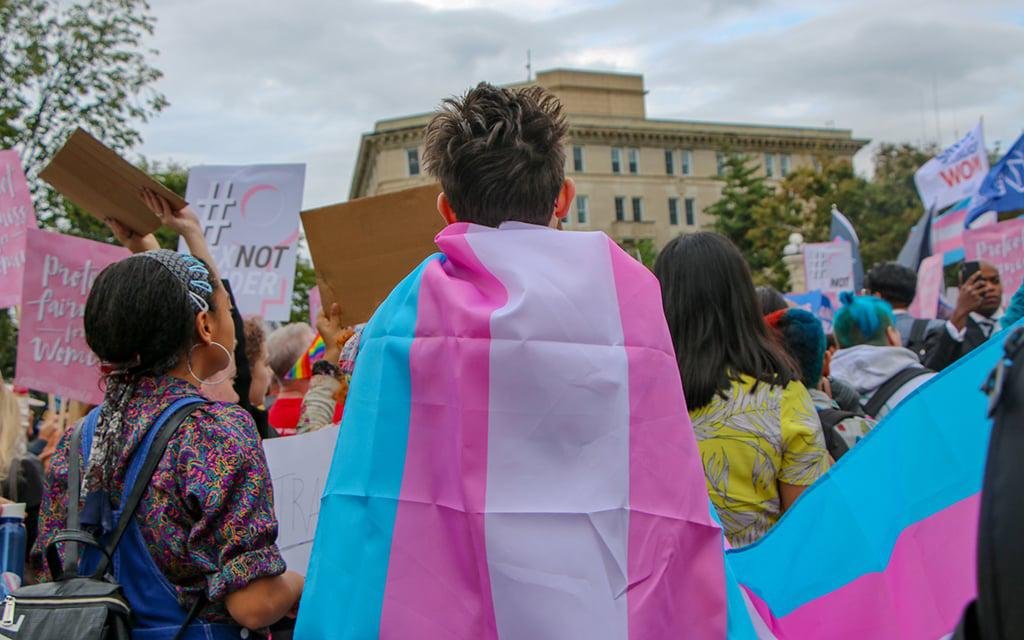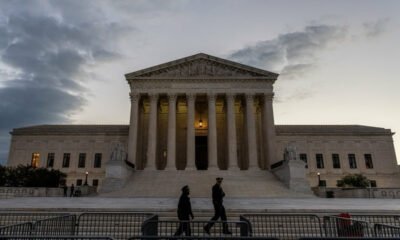Business
President Trump’s ‘Keeping Men Out of Women’s Sports’ Exacerbates Transgender Female Athlete Debate

On a recent April morning in Maine, a significant legal challenge was filed against the U.S. Department of Agriculture (USDA), centering not on food regulations but on identity and the politics of sports participation.
The controversy arose after the USDA froze federal funding for food insecurity programs, a move linked to a broader battle initiated by the Trump administration regarding transgender participation in athletics.
This conflict escalated when Maine Governor Janet Mills chose to defy Trump’s executive order from February 5, which aims to bar transgender women and girls from competing in women’s sports. Following this, a federal judge ordered the Trump administration to unfreeze the funding.
This ruling also includes a temporary restraining order protecting Maine from USDA funding cuts. Nationwide, the issue of transgender athletes has ignited debate, with a January New York Times/Ipsos poll revealing bipartisan opposition to allowing transgender women in women’s sports.
Two years ago, Arizona legislators passed a bill prohibiting transgender girls from competing on girls’ teams. However, Maine’s approach remains confrontational, signaling a refusal to concede easily.
Trump’s executive order is predicated on the belief that gender is determined by biological sex assigned at birth. It references Title IX, the landmark law prohibiting sex-based discrimination in federally funded educational programs.
By threatening the withdrawal of federal funds, the administration aims to enforce compliance among states and schools, a tactic that has intensified the division on this topic.
Critics of the executive order, including legal advisors like Beth Parlato, argue that the order misinterprets Title IX, claiming its intent was to ensure fairness in sports based on biological sex, not gender identity.
“There was never any intent to allow men into women’s sports,” Parlato contends, underscoring her belief in the protection of opportunities for female athletes.
Conversely, advocates for transgender rights, such as Rachel Berg from the National Center for Lesbian Rights, argue the executive order violates equal protection clauses and civil rights statutes rather than Title IX.
The conflict reached a peak when the Trump administration asserted that Maine’s educational department did not comply with the executive order. Consequently, the USDA announced a cessation of $4.5 million in federal funds to the University of Maine’s Sea Grant program.
While advocates like Berg describe the executive order as unconstitutional, others believe compliance stems from financial necessity. They argue schools cannot afford to lose federal support.
In Arizona, LGBTQ+ advocacy groups express concern over the implications of the executive order. Education Action Alliance’s President, Madelaine Adelman, emphasizes the importance of inclusive sports for all children.
Tami Staas, Executive Director of the Arizona Trans Youth and Parent Organization, criticizes the focus on transgender girls in sports, perceiving it as a misplaced obsession given their minimal representation in athletics.
Despite these challenges, AZTYPO remains committed to supporting young transgender athletes facing discrimination and connecting them with legal resources.
The ongoing ramifications of this executive order have already led to substantial financial losses. For instance, the University of Pennsylvania lost $175 million in federal funding due to a transgender athlete’s participation on its swim team.
Looking forward, the executive order could influence the upcoming 2028 Los Angeles Summer Olympics, as it outlines guidance on inclusion based on biological sex.
In response to the USDA funding freeze, Maine Governor Mills criticized the decision, labeling it irrational and lamenting what she perceives as an unwarranted reinterpretation of the law.
Currently, the federal judge’s order remains in effect, providing temporary protection for Maine against funding cuts.


















